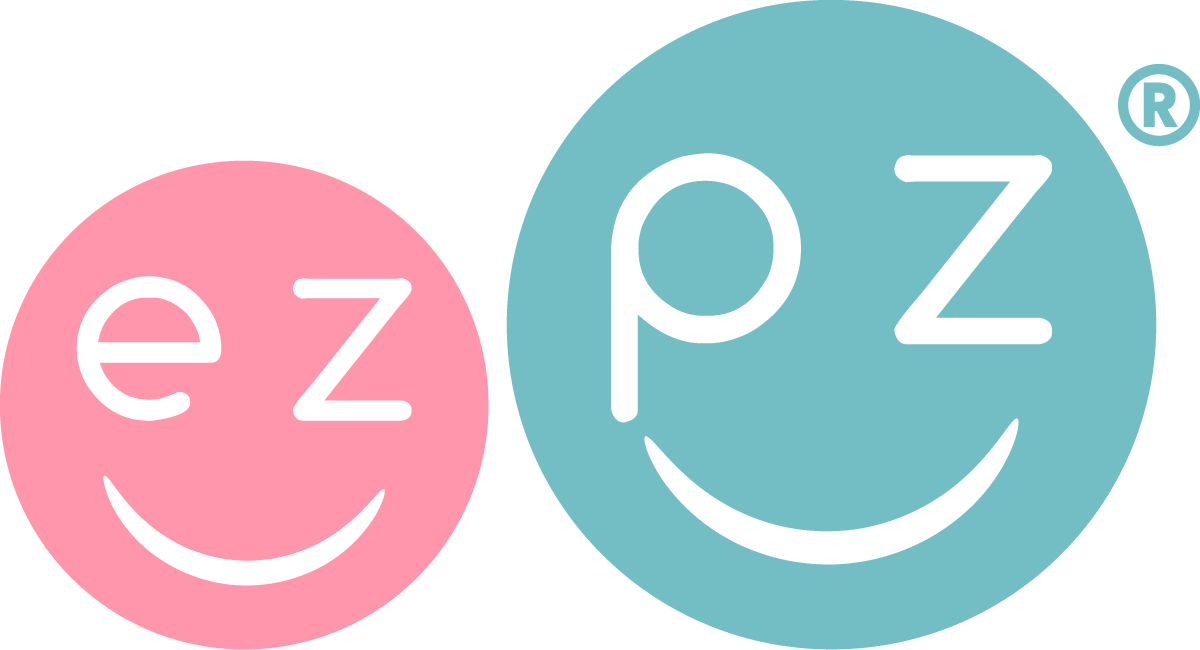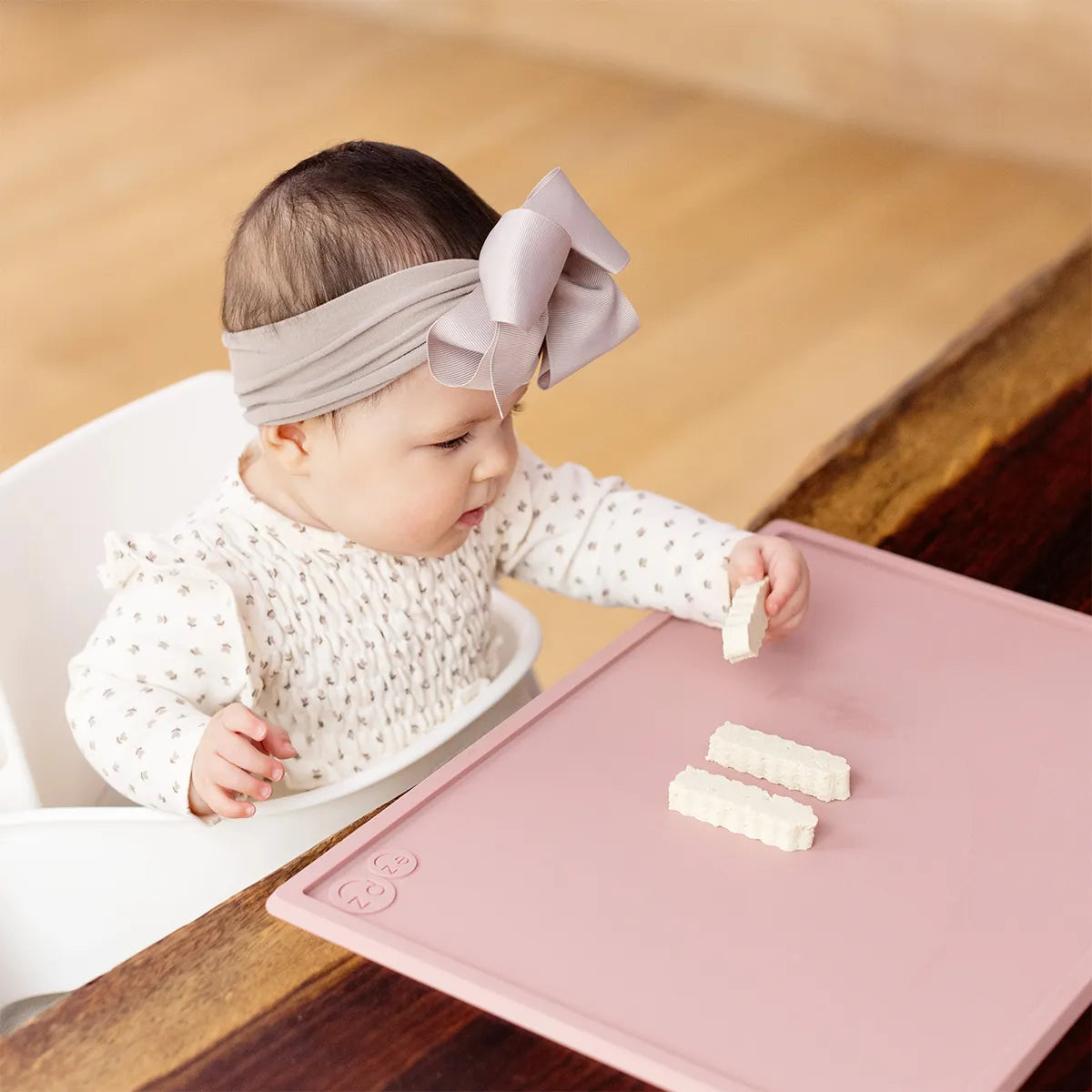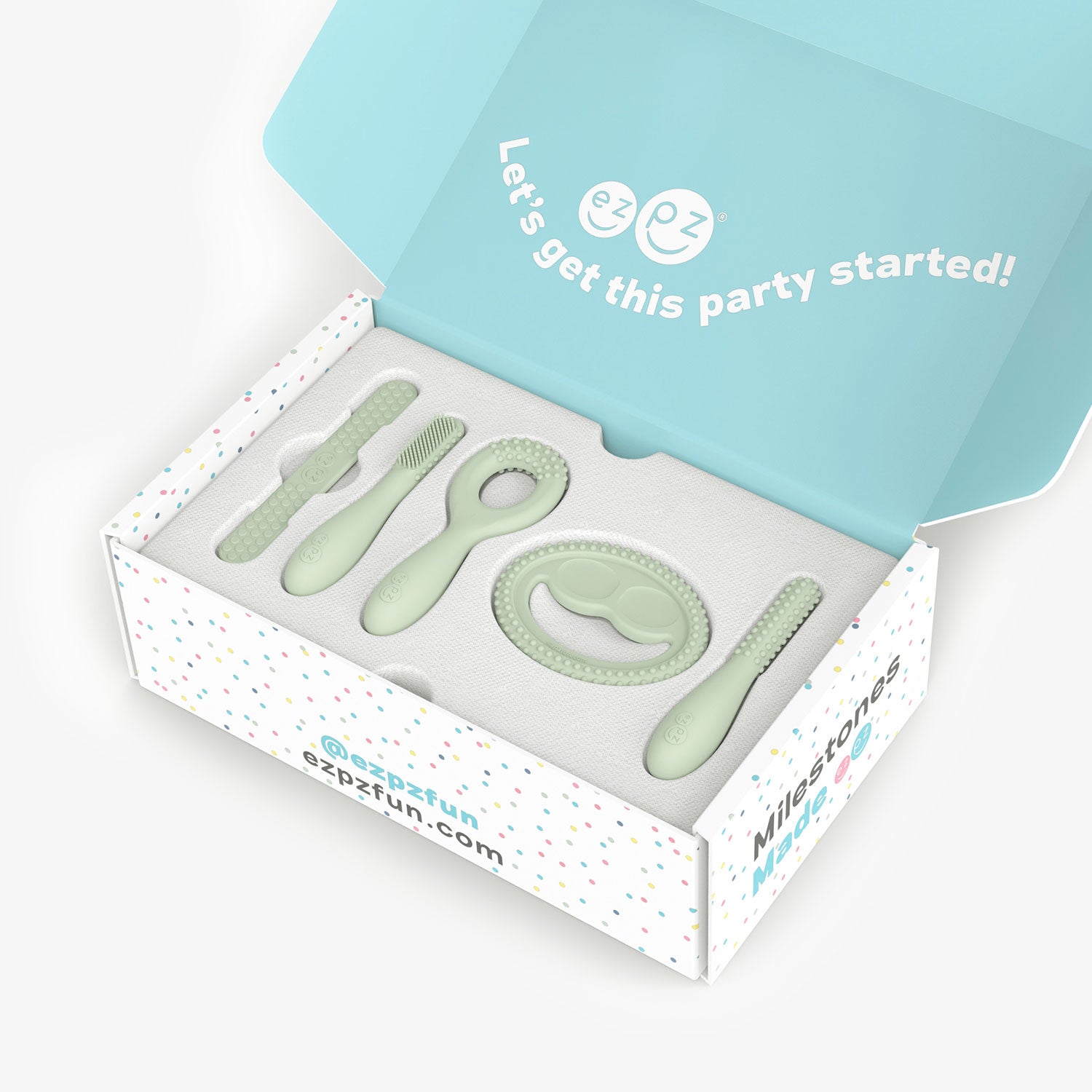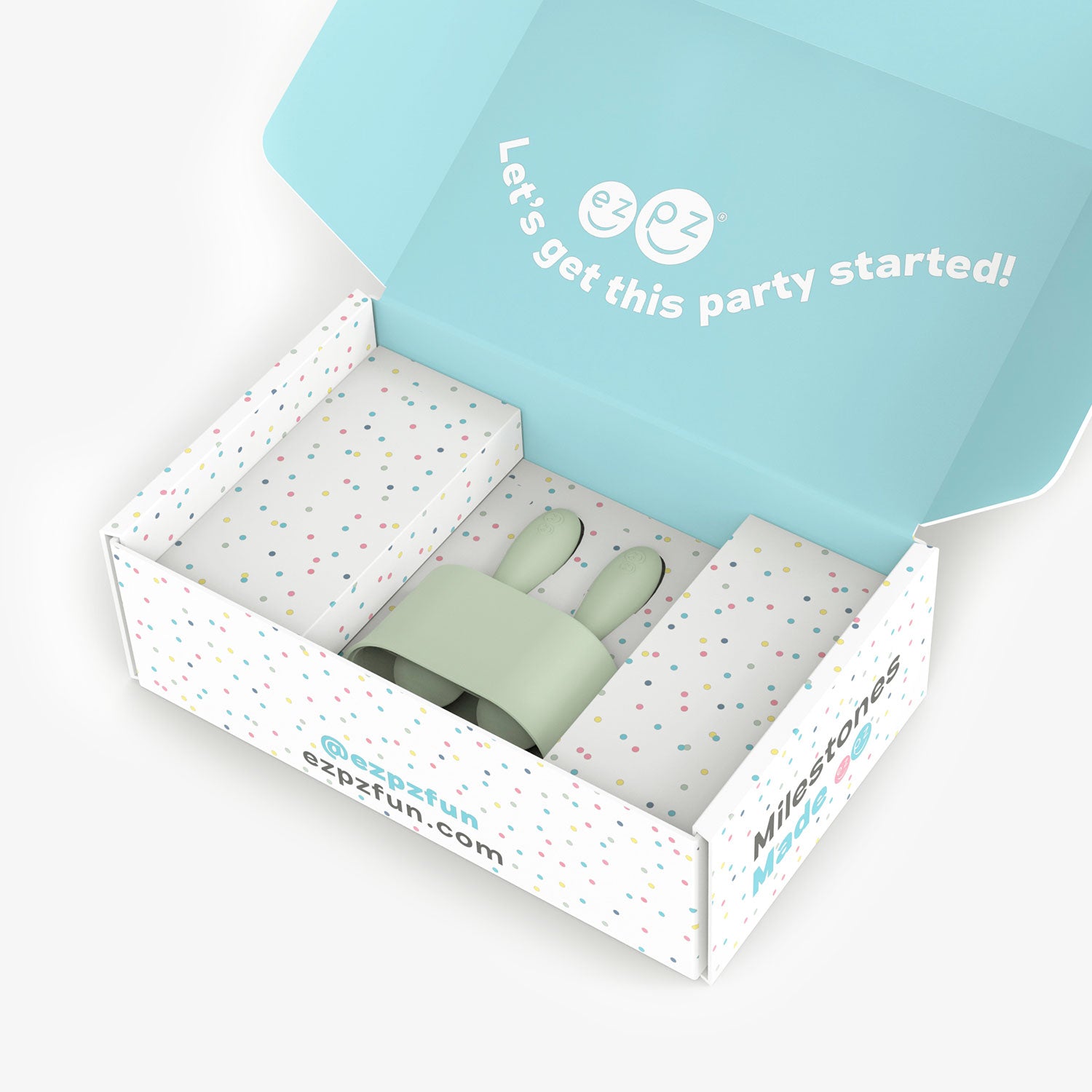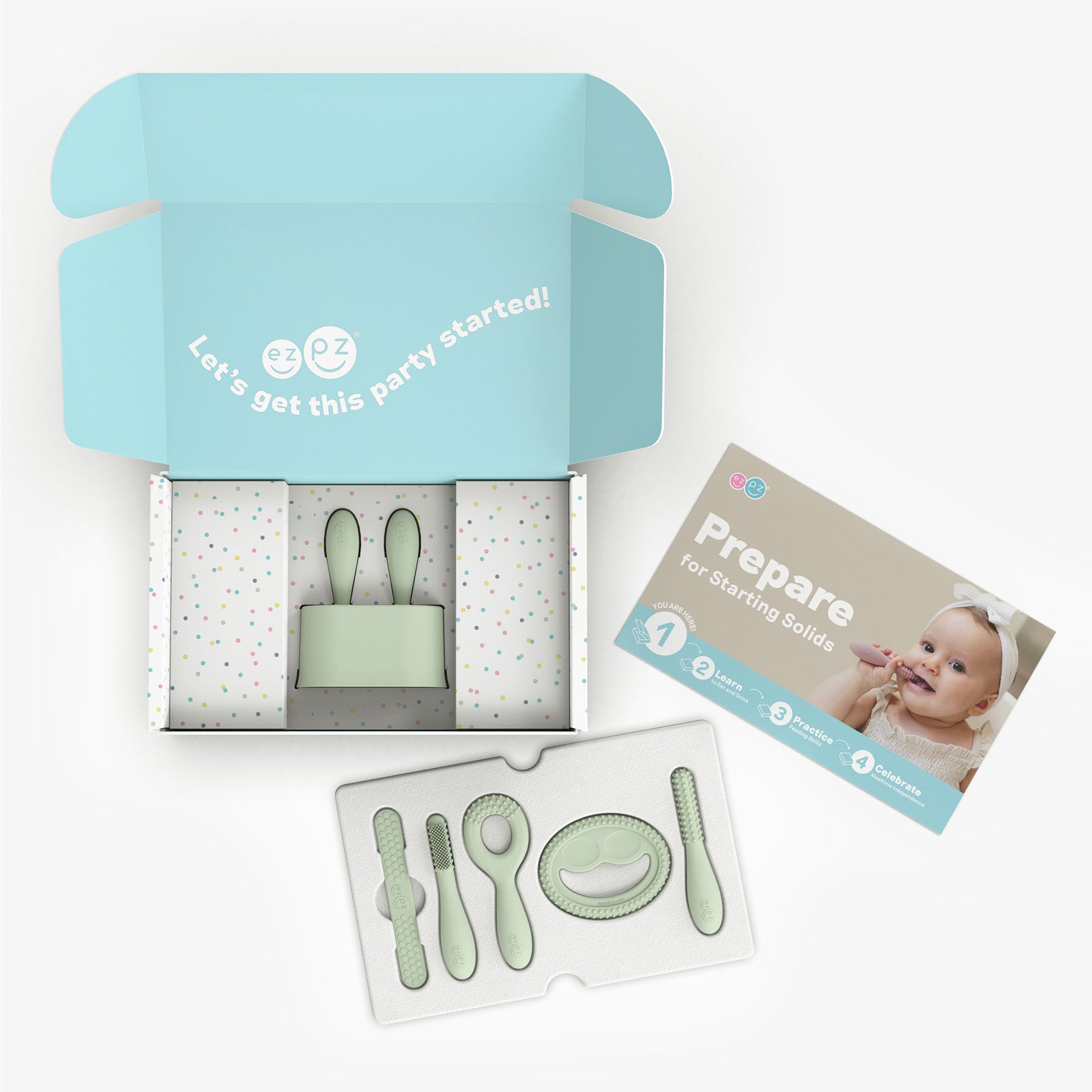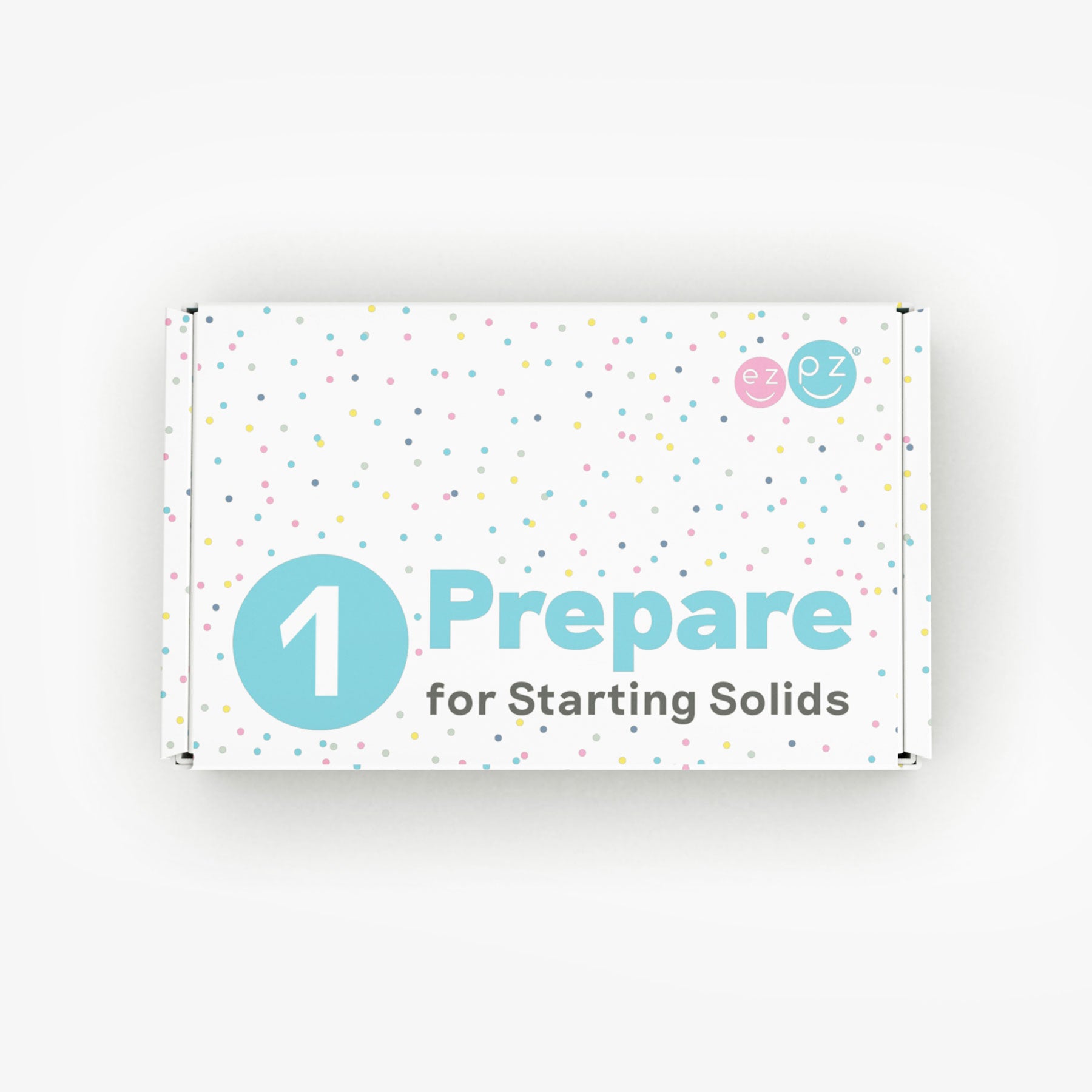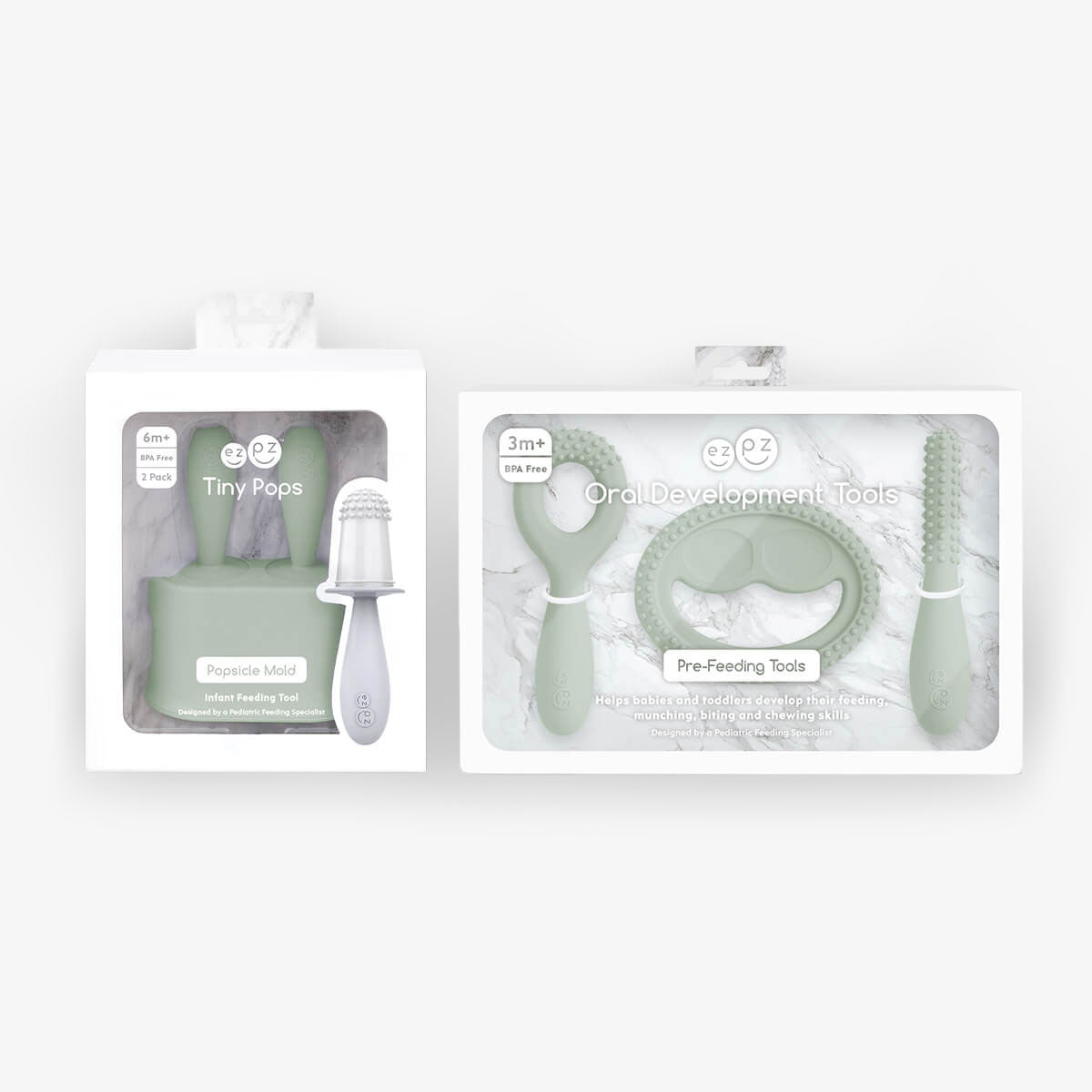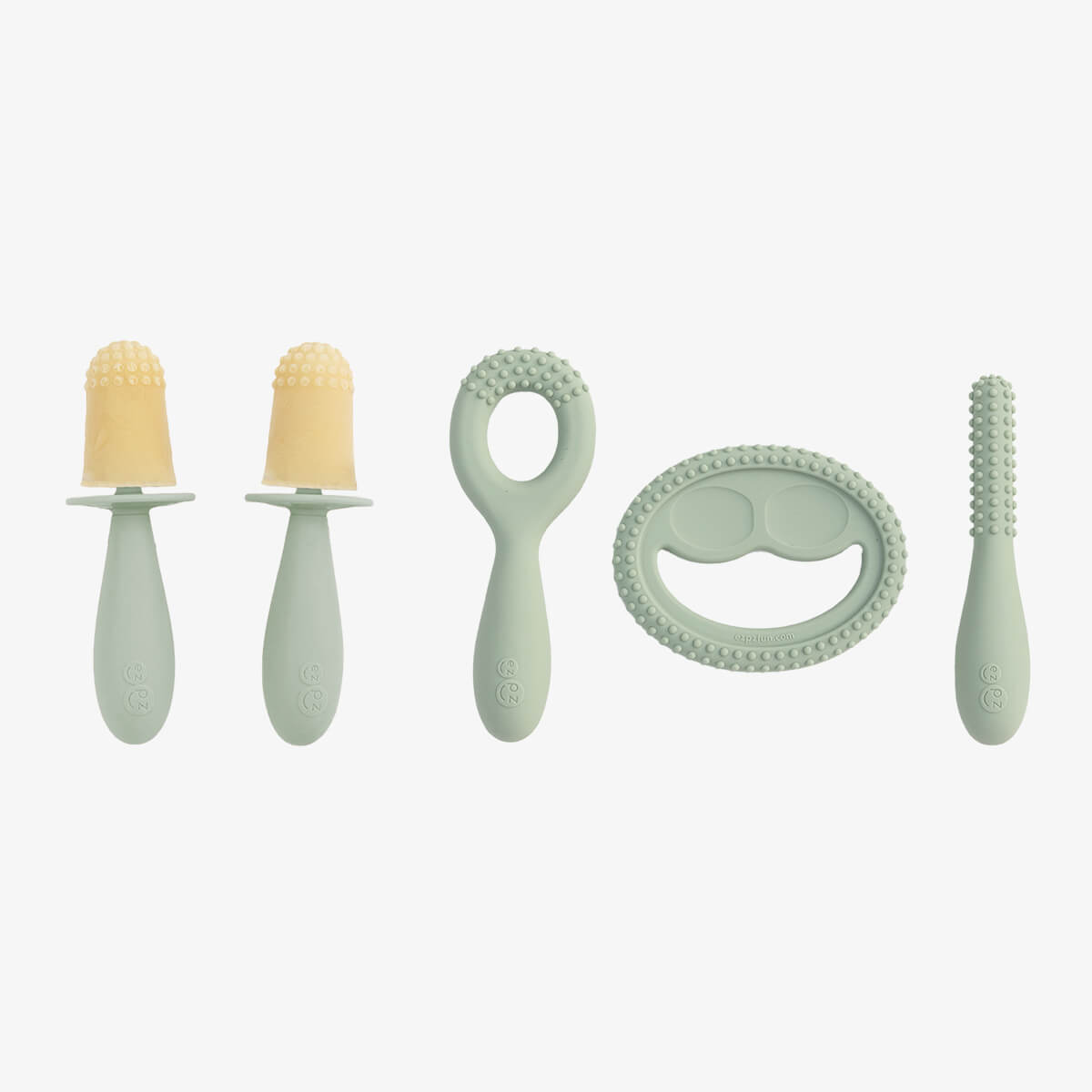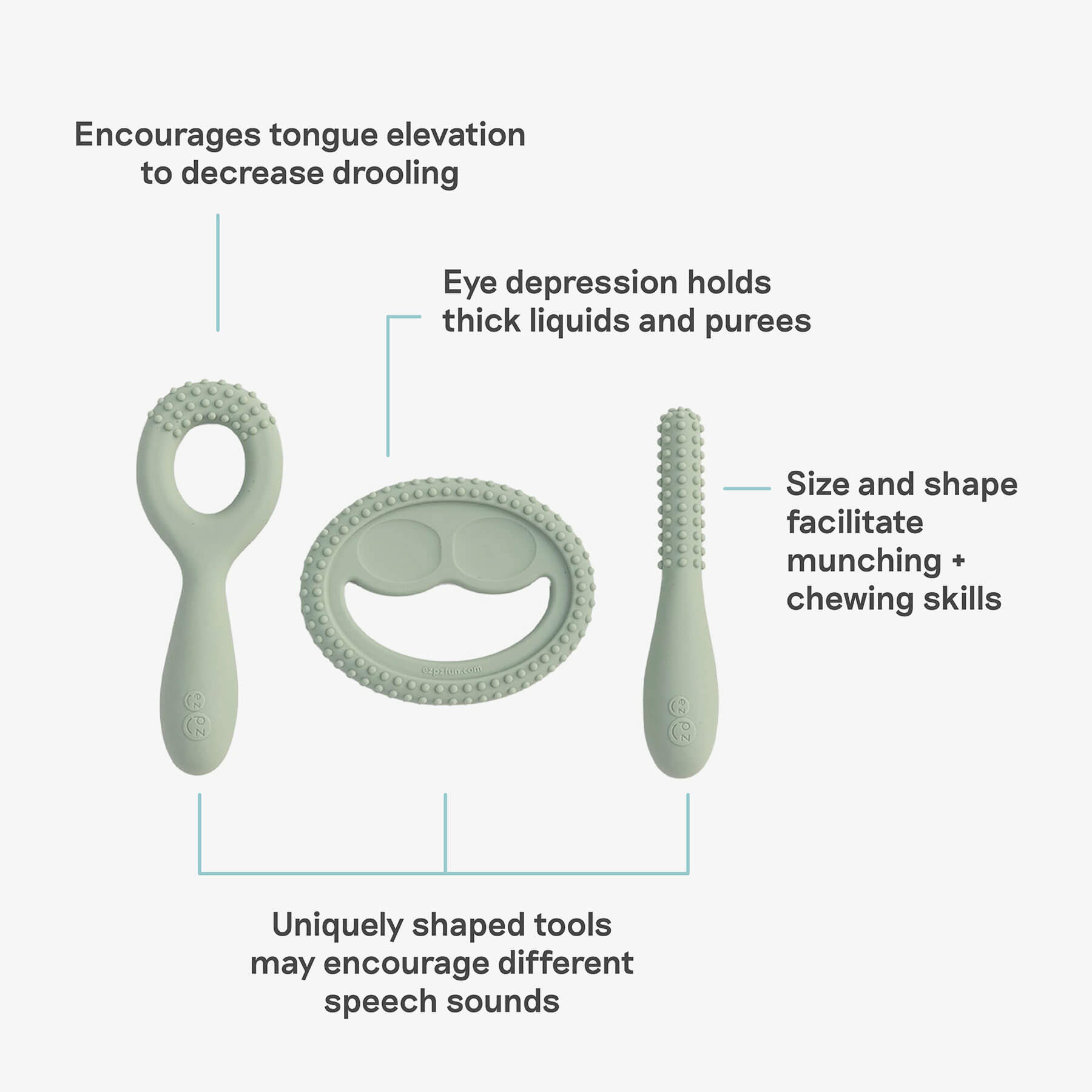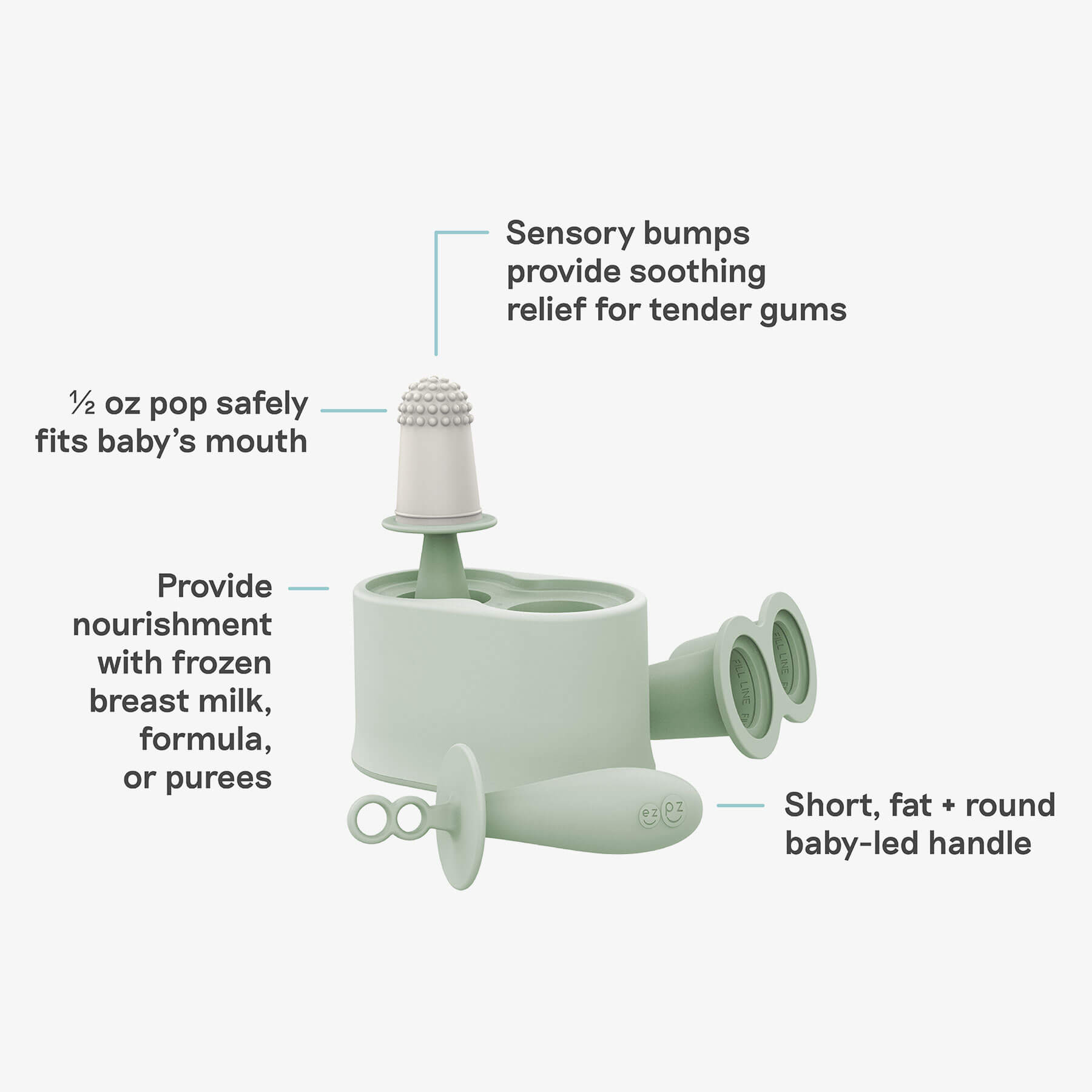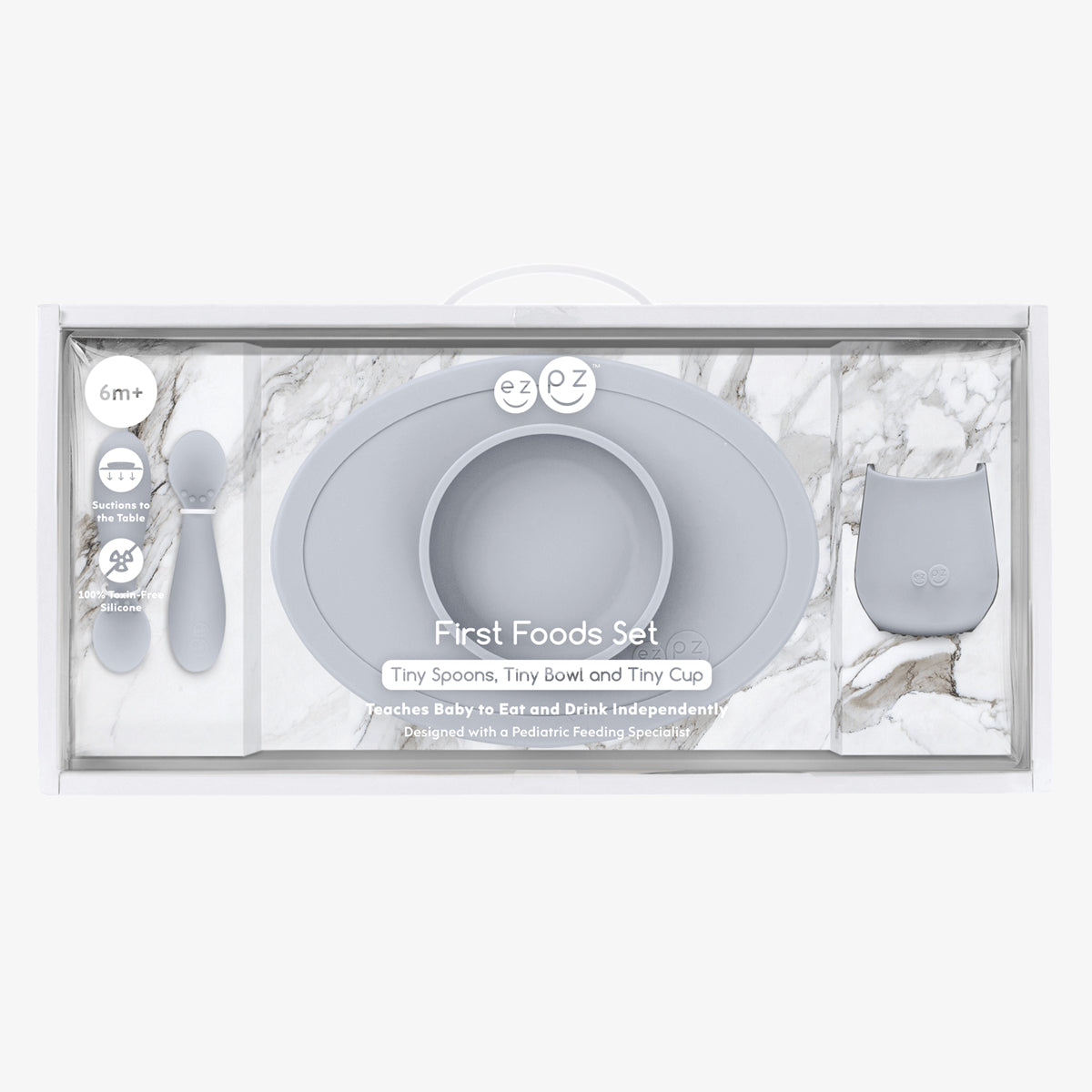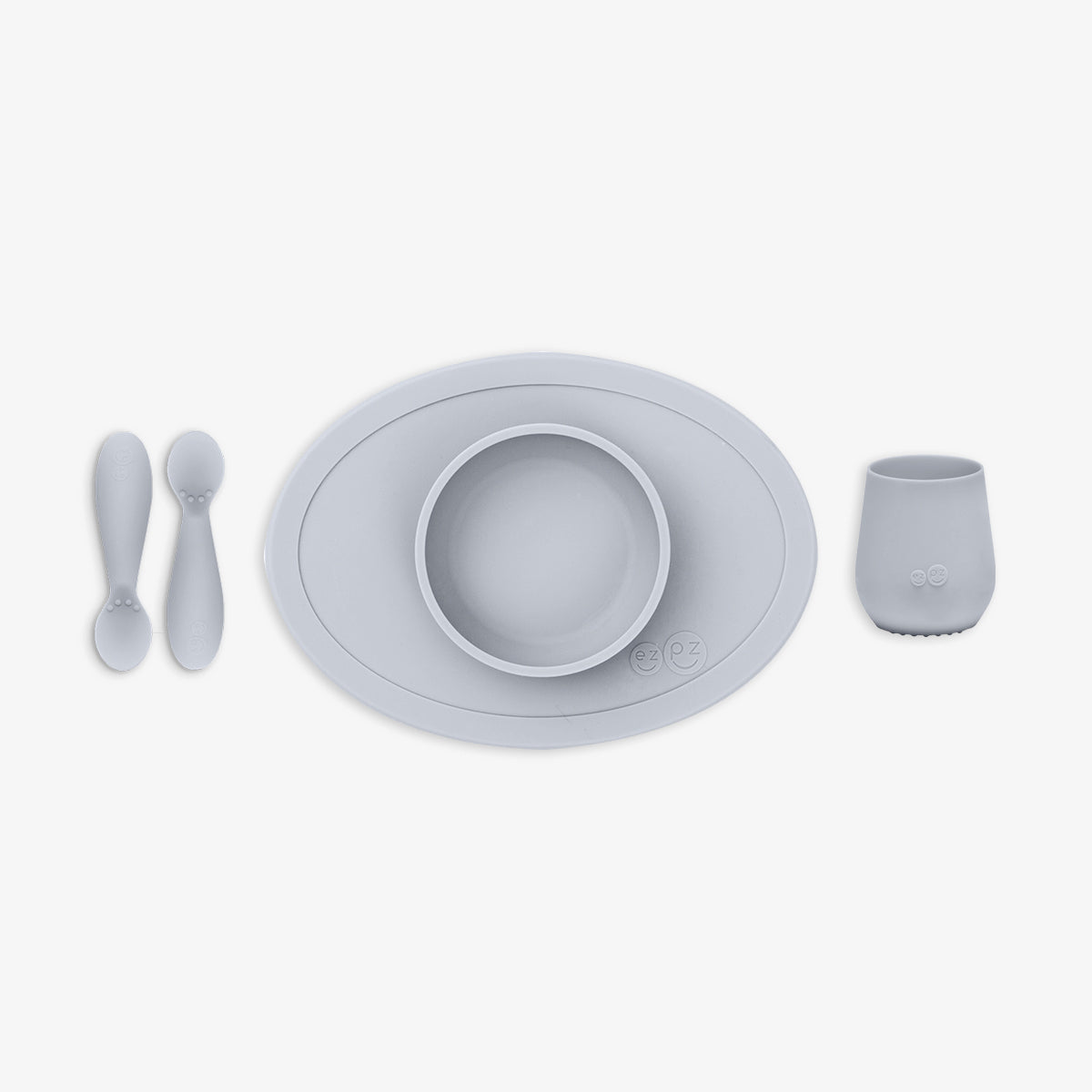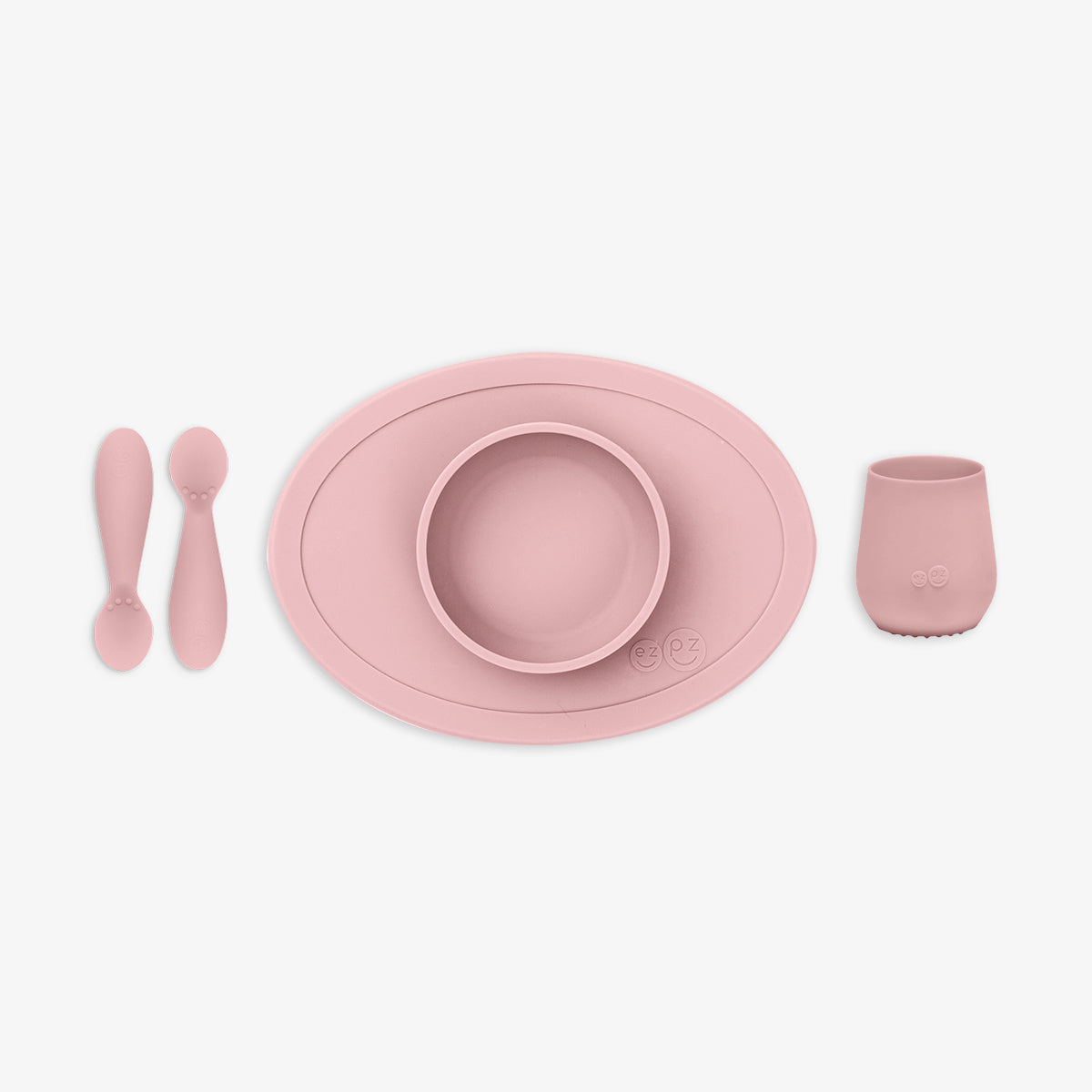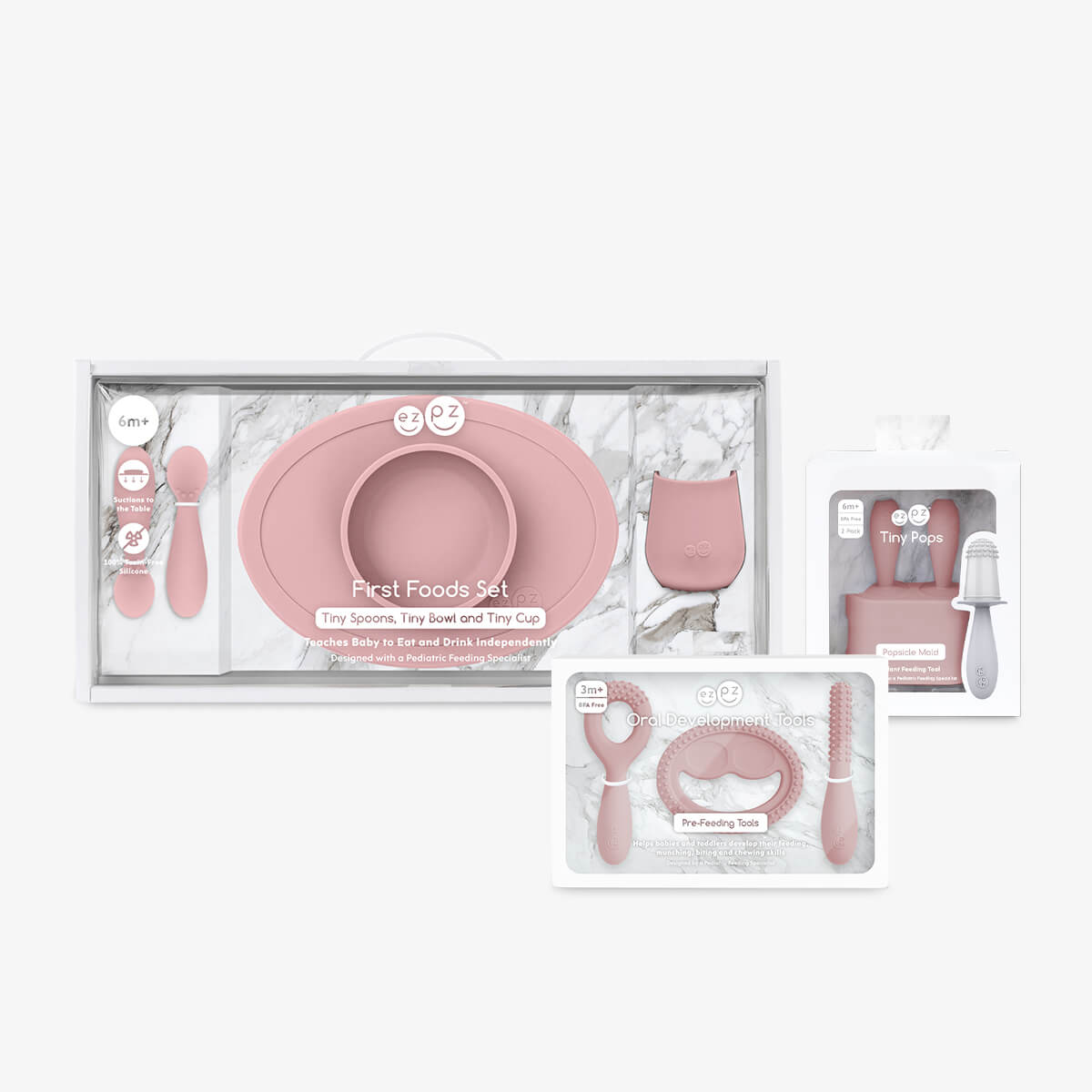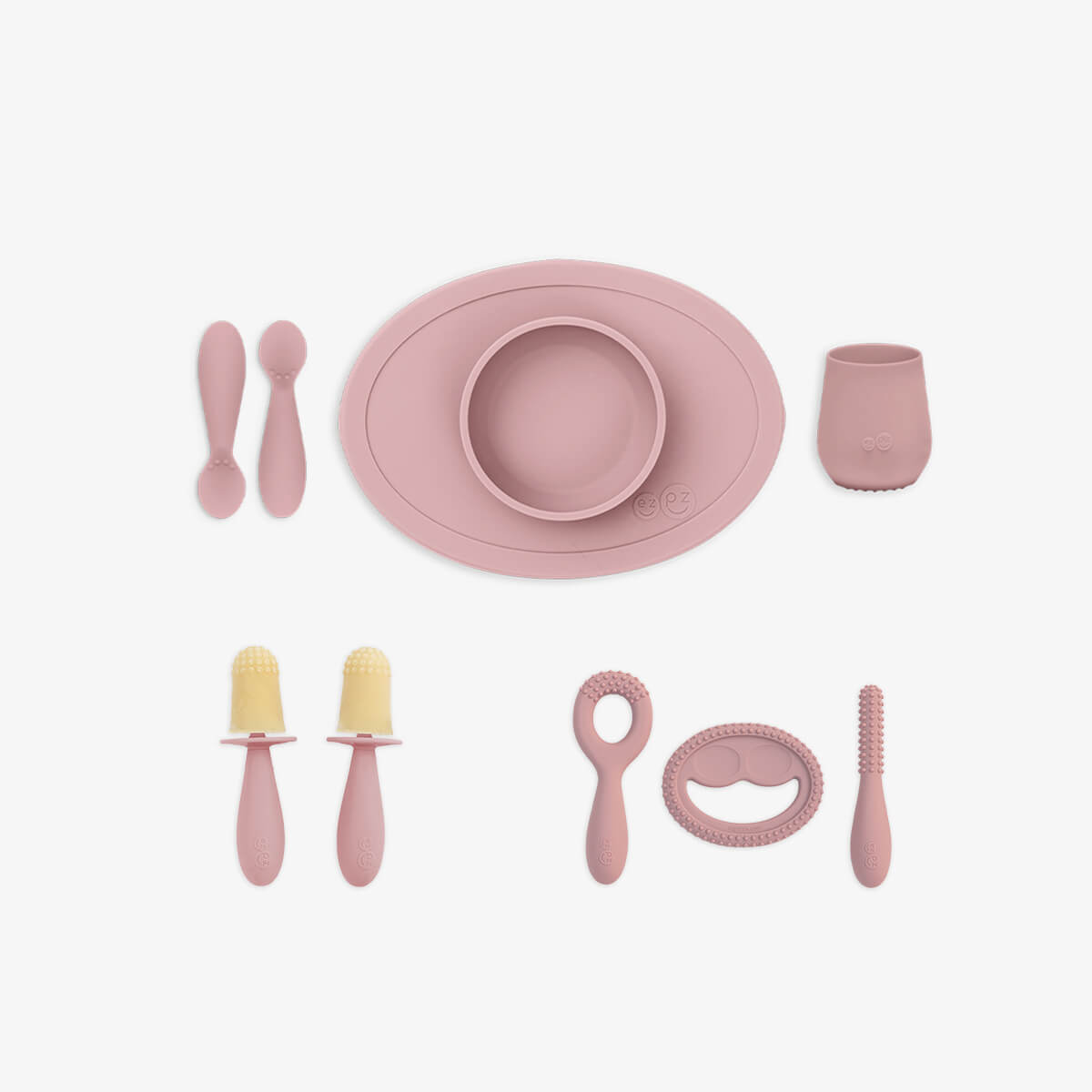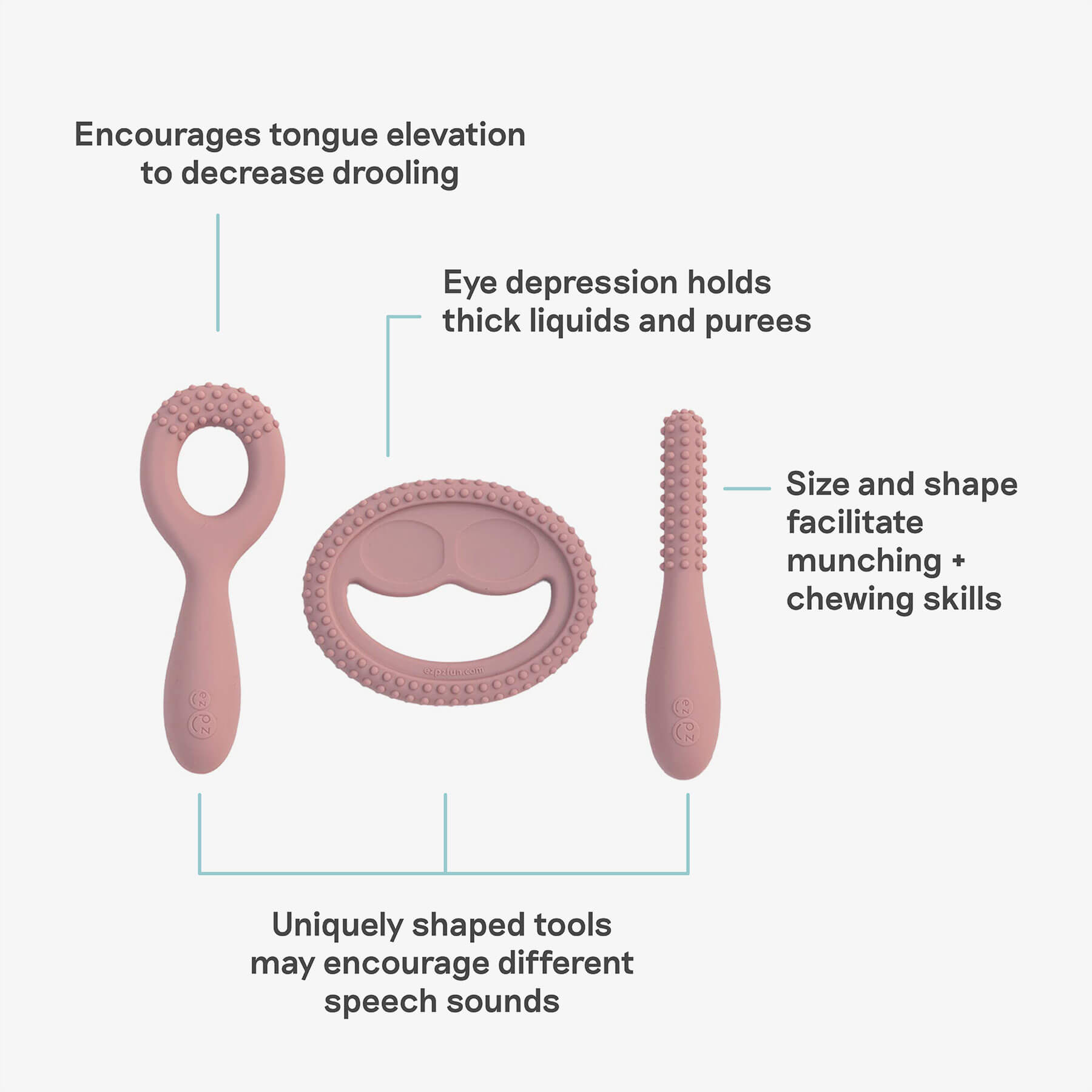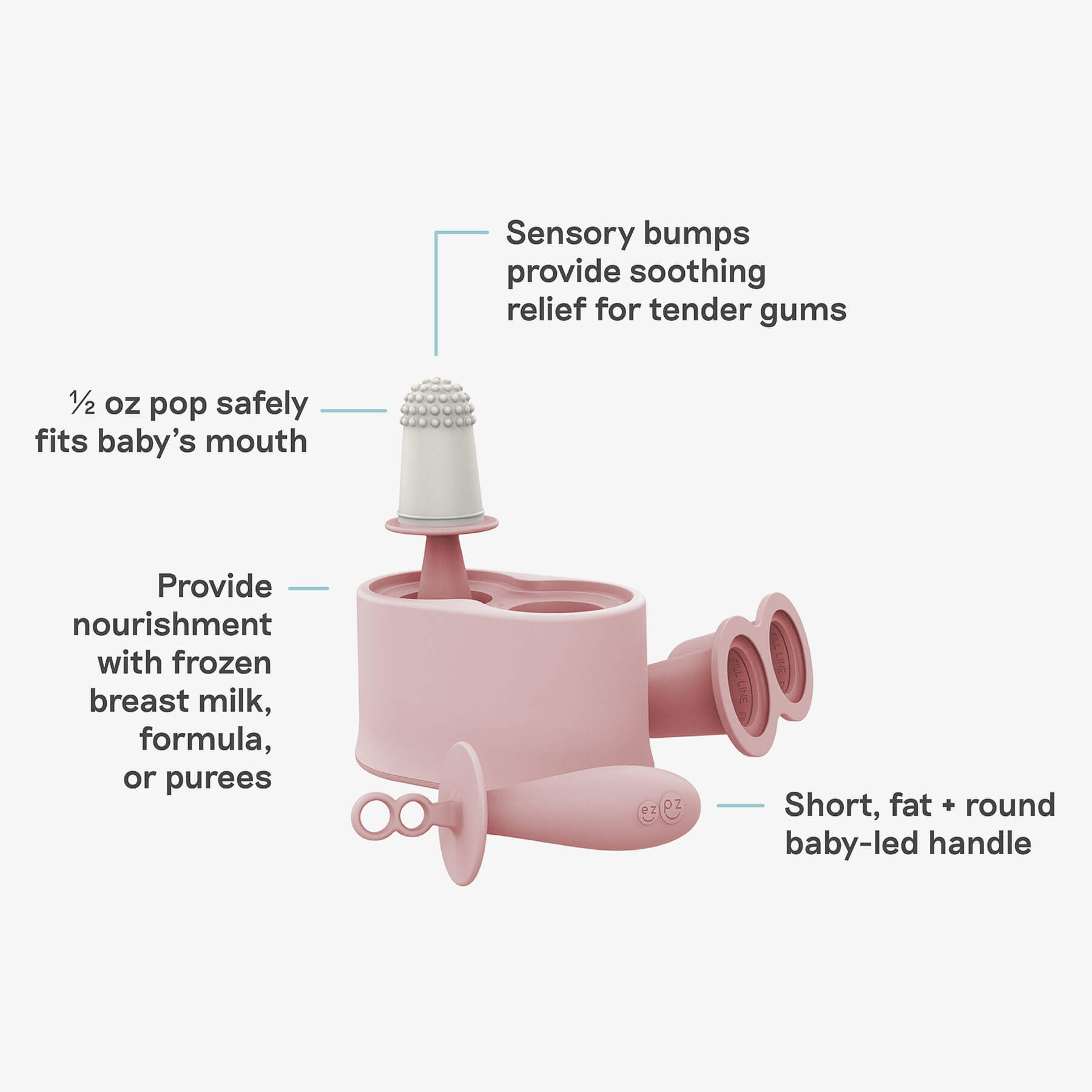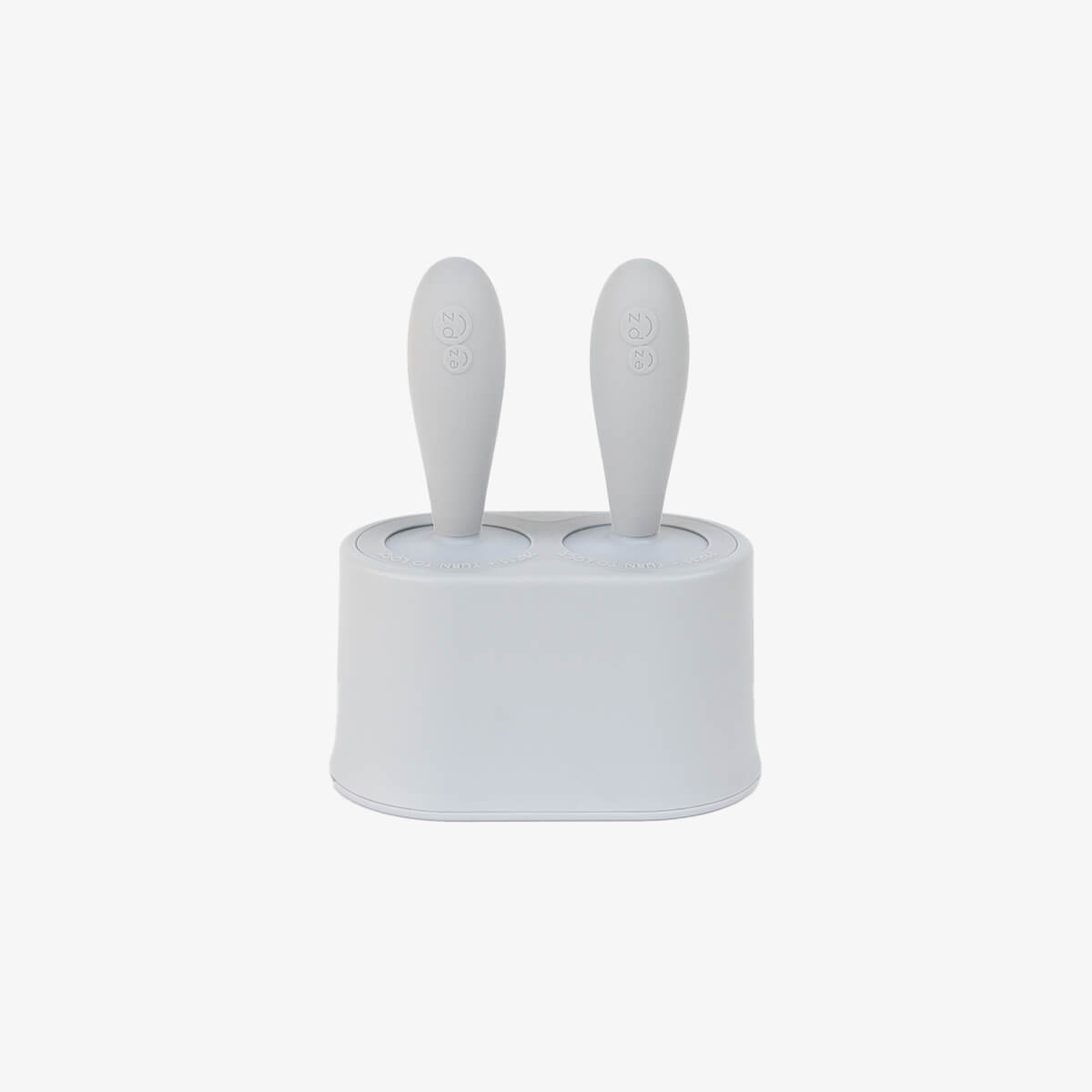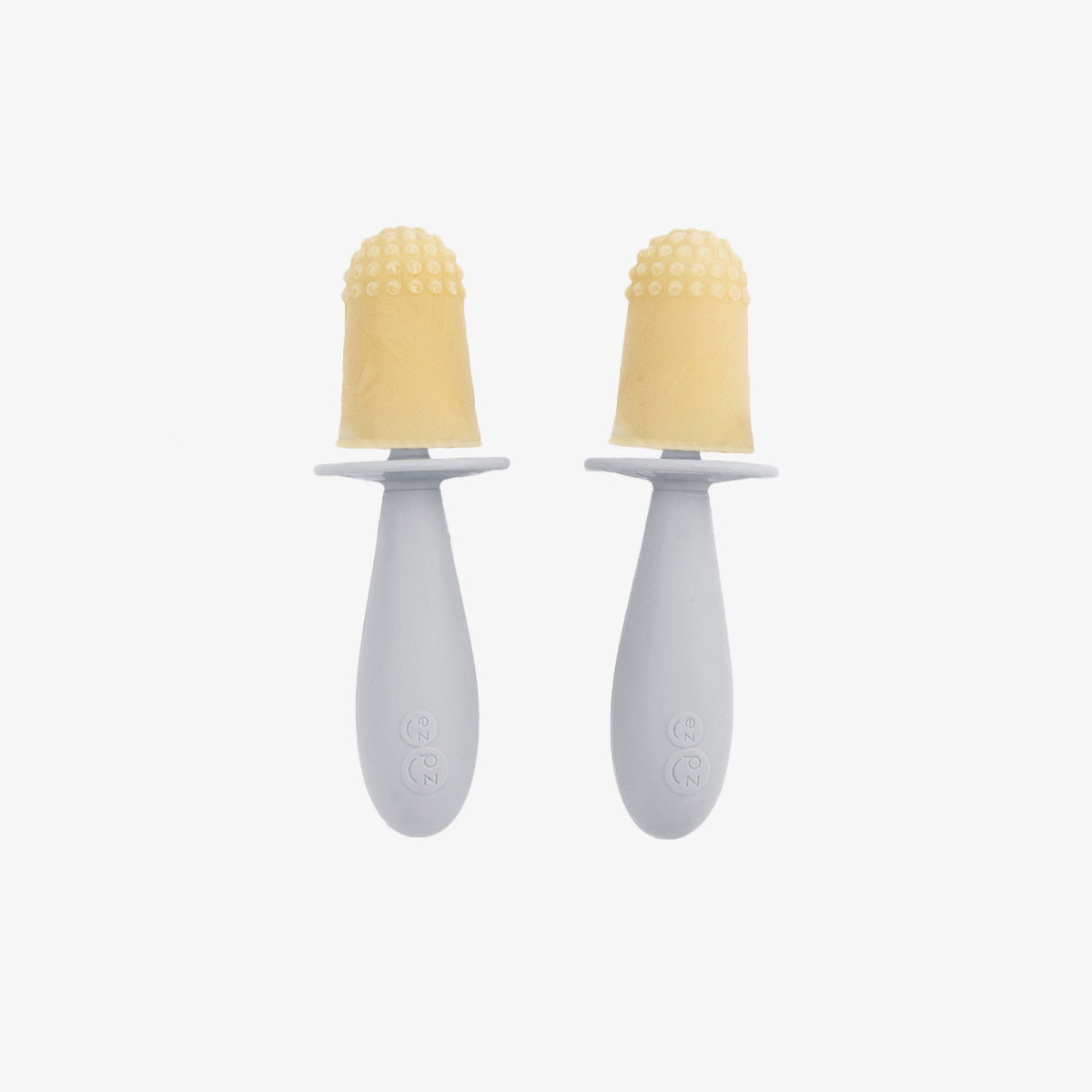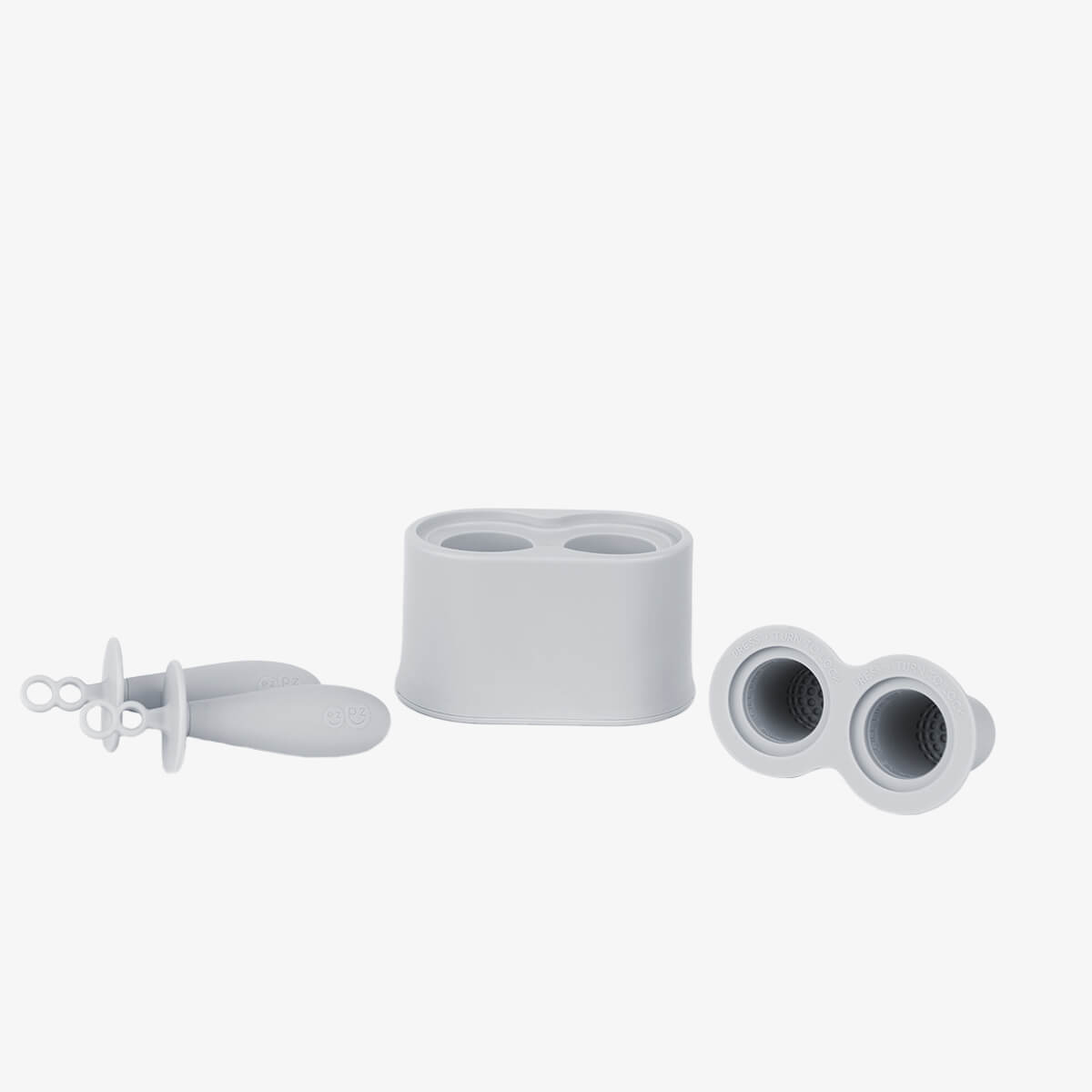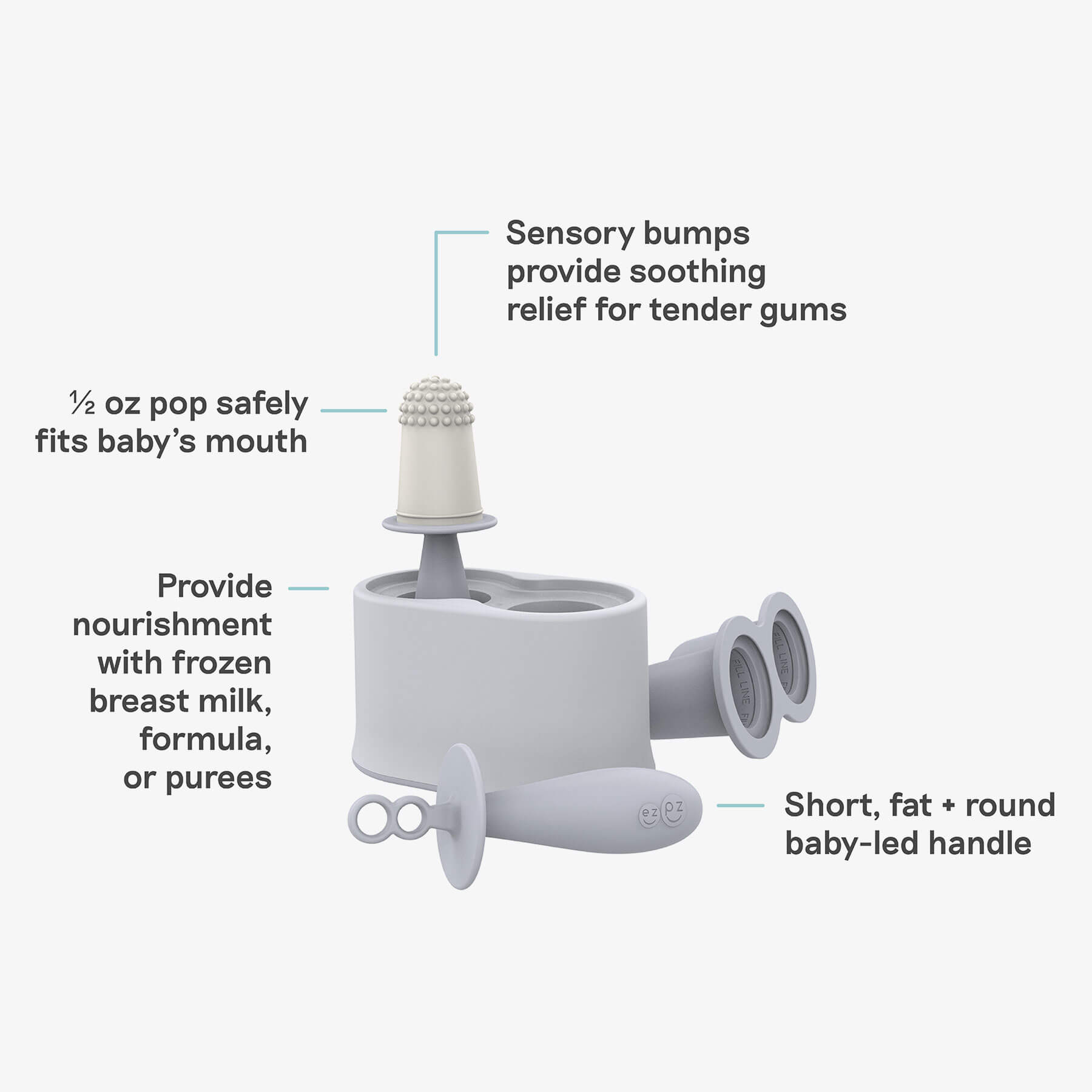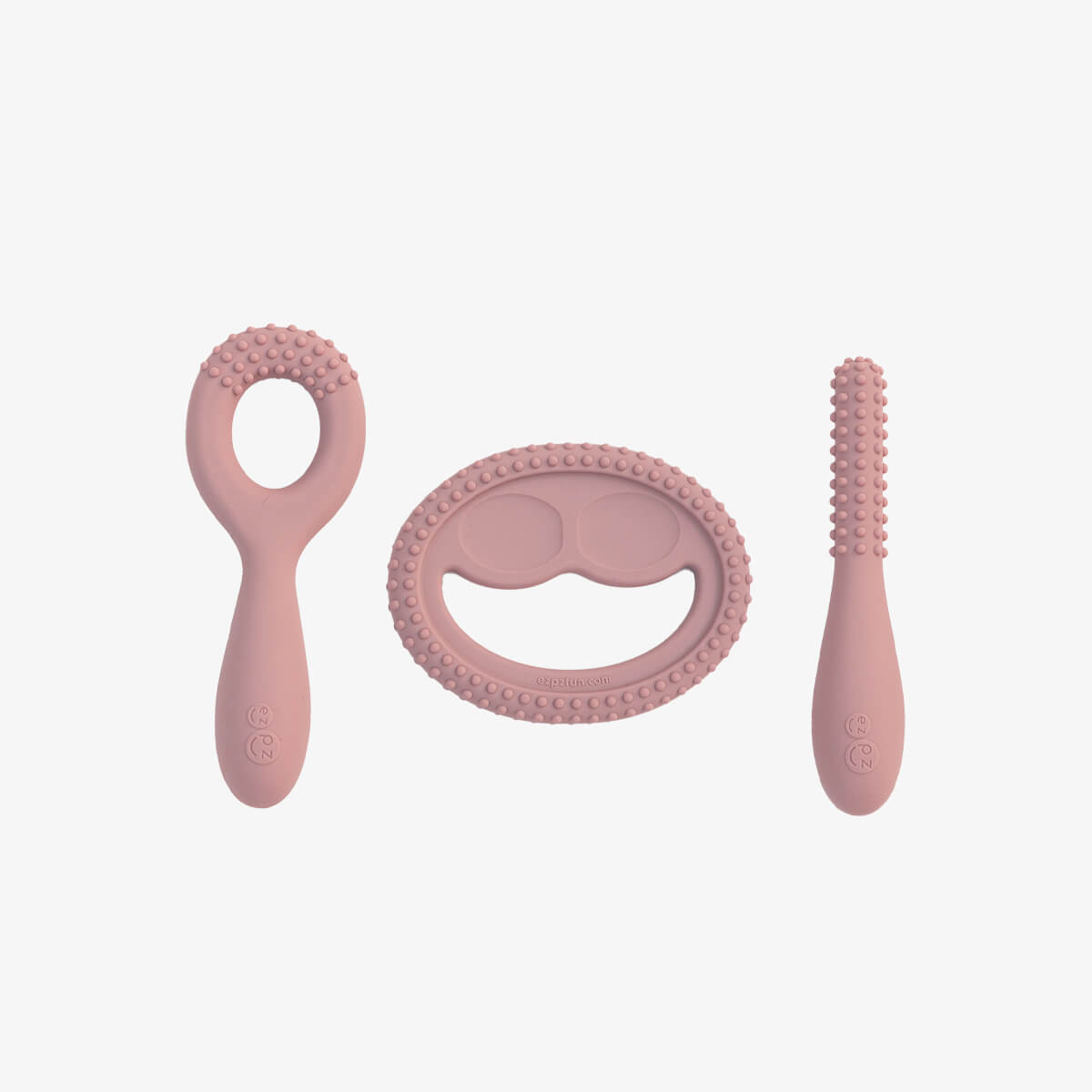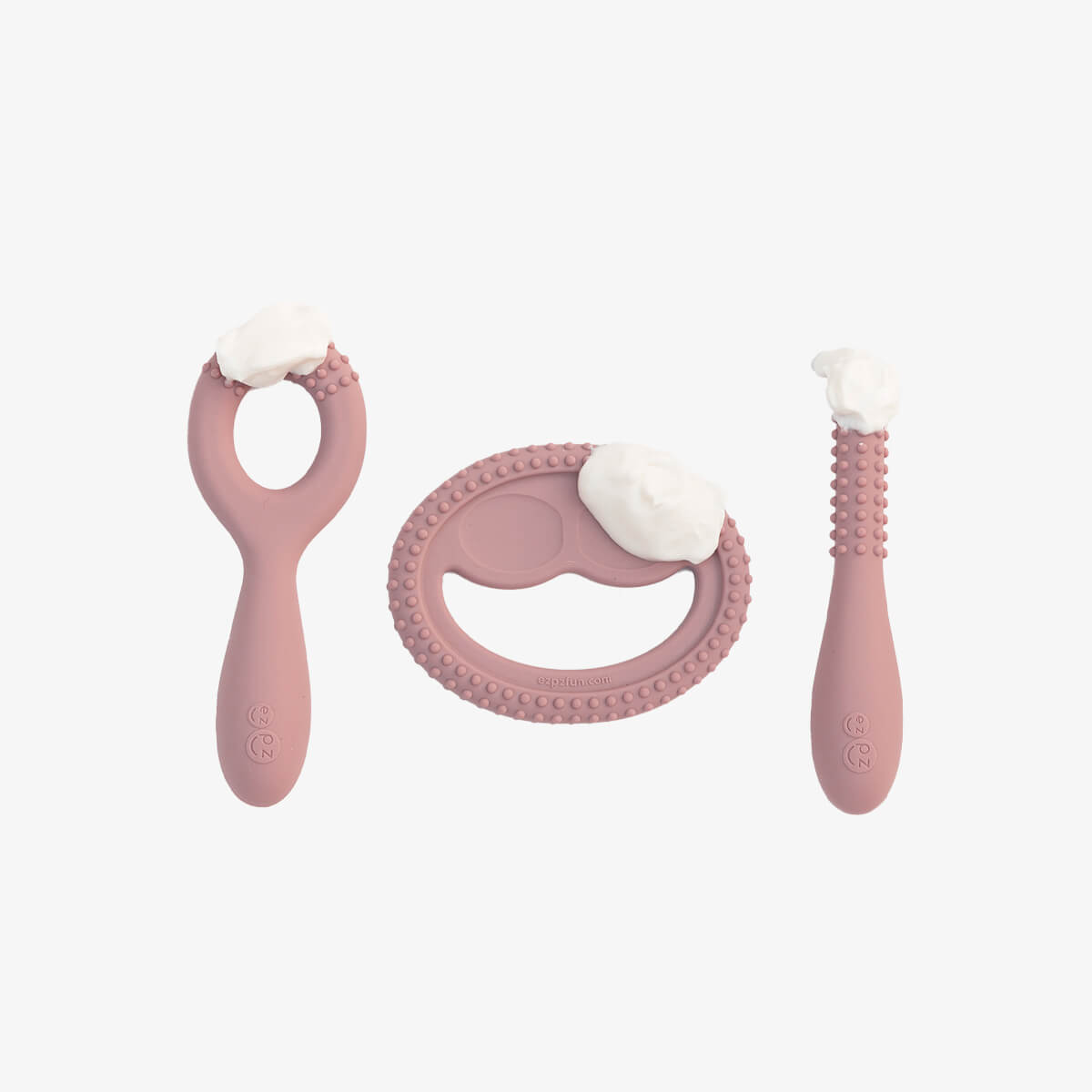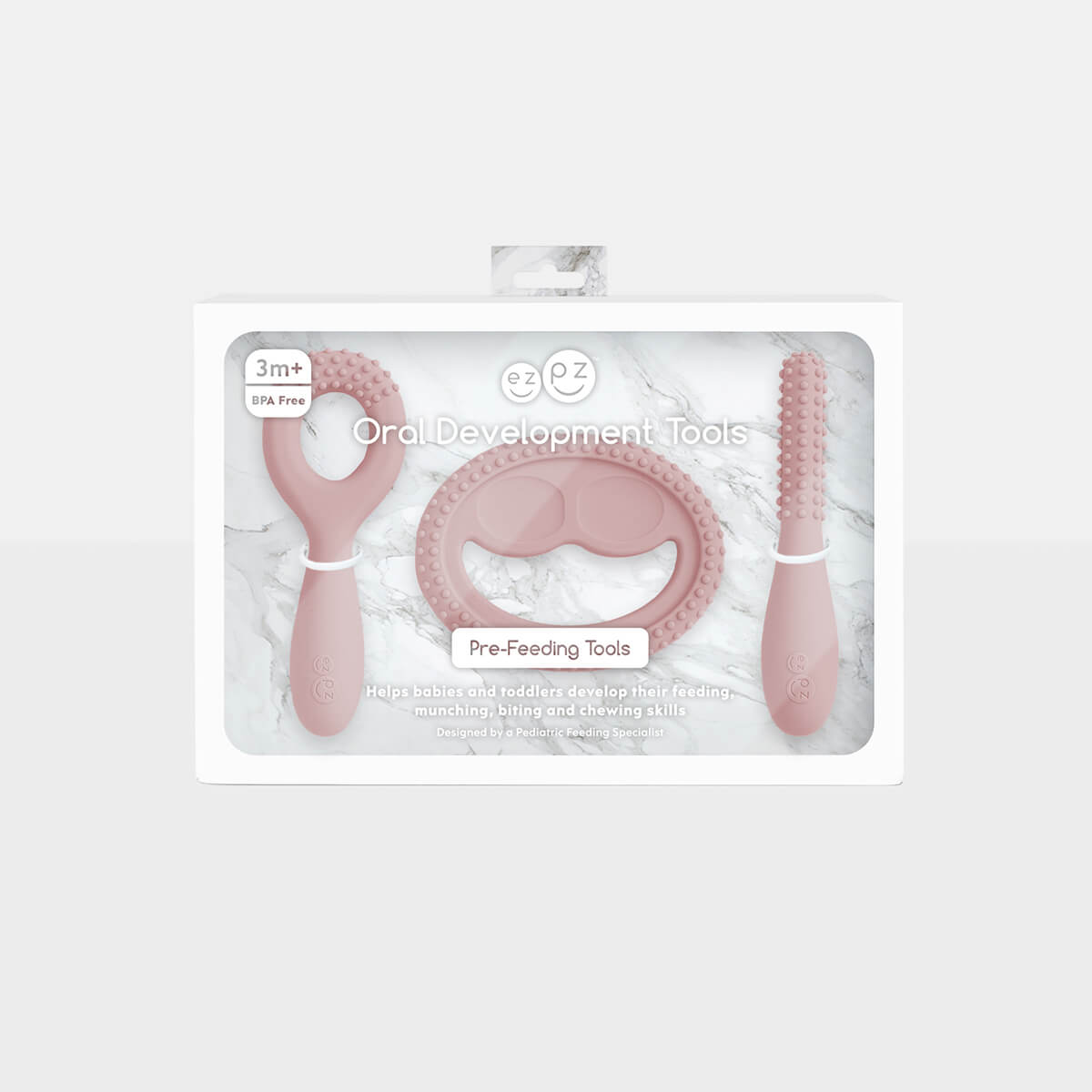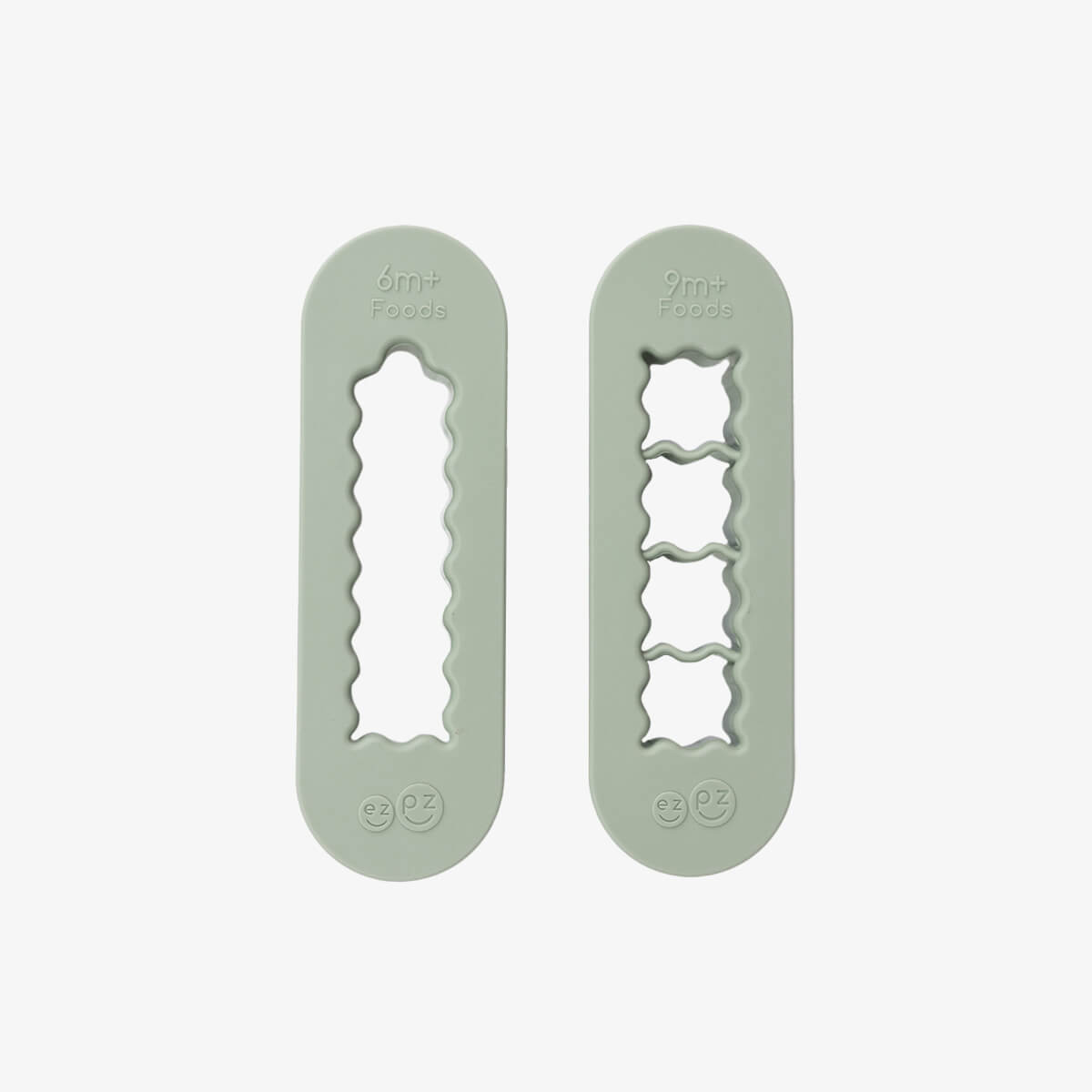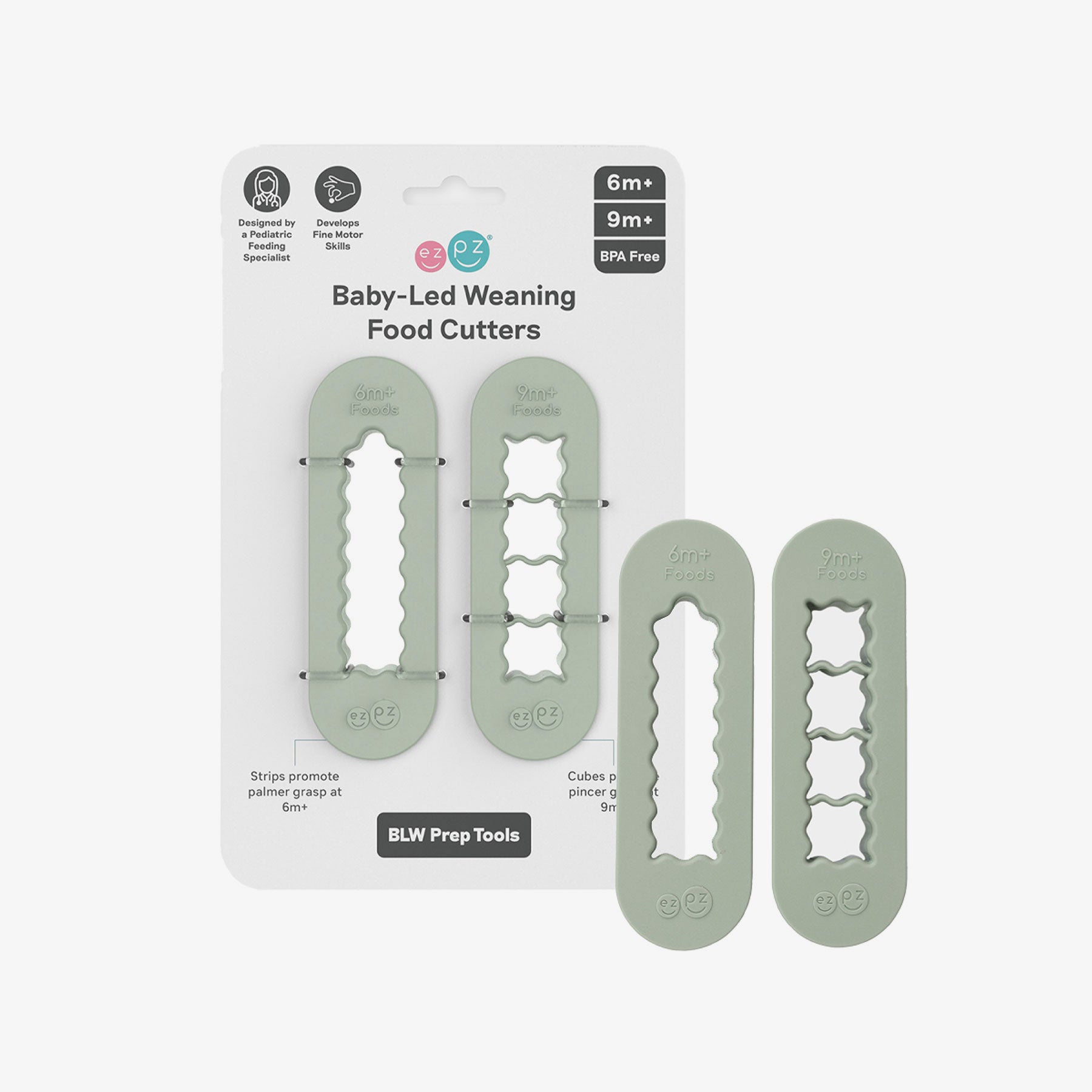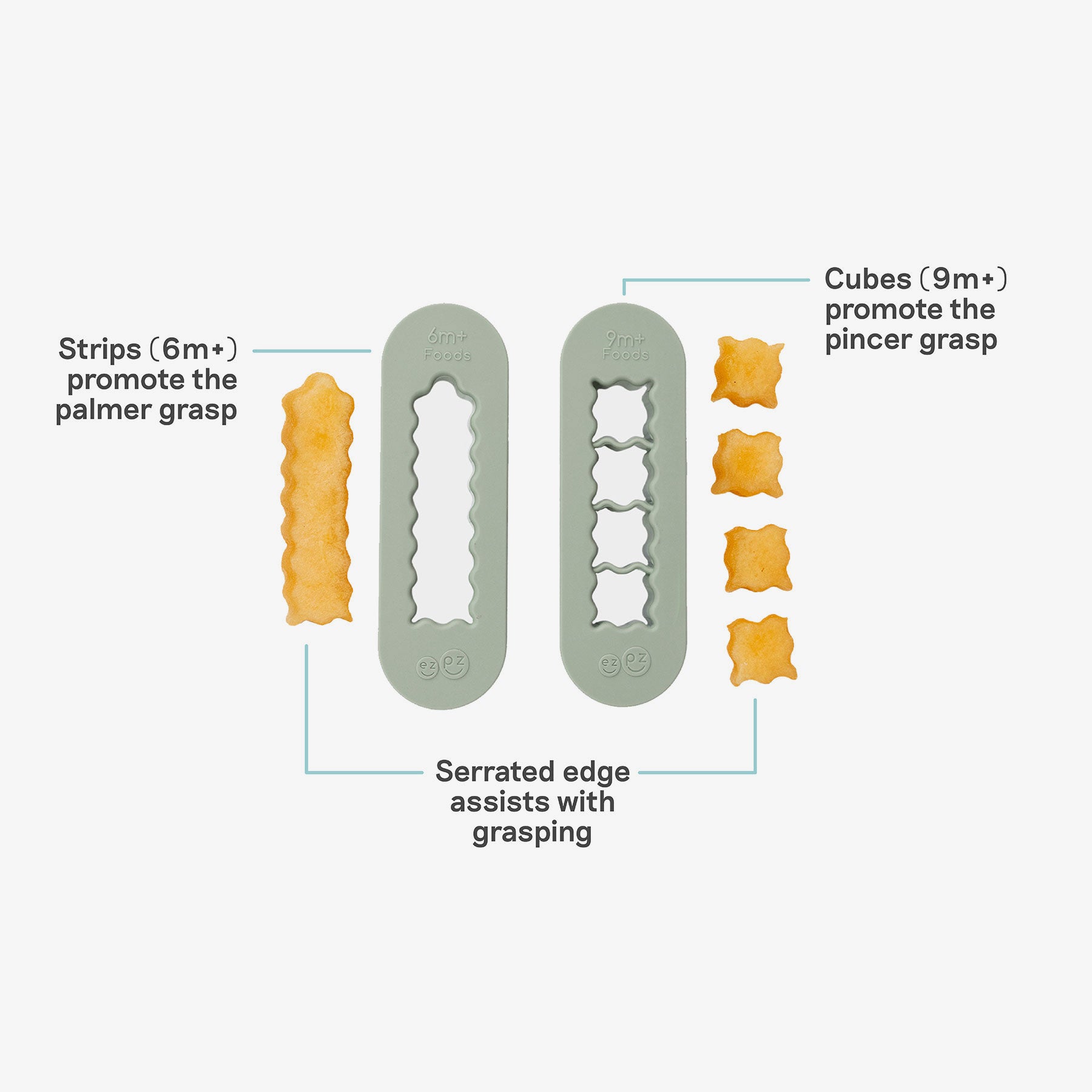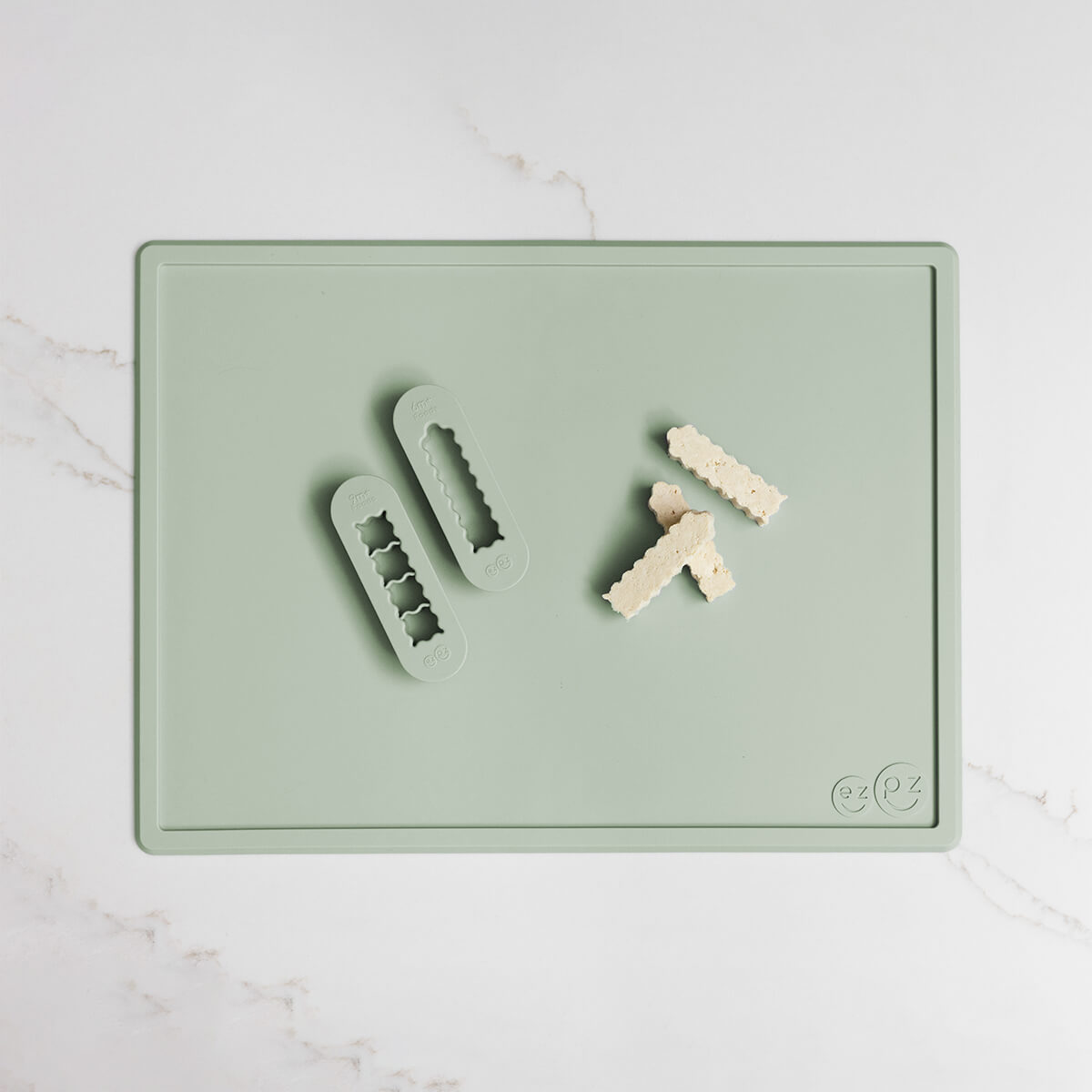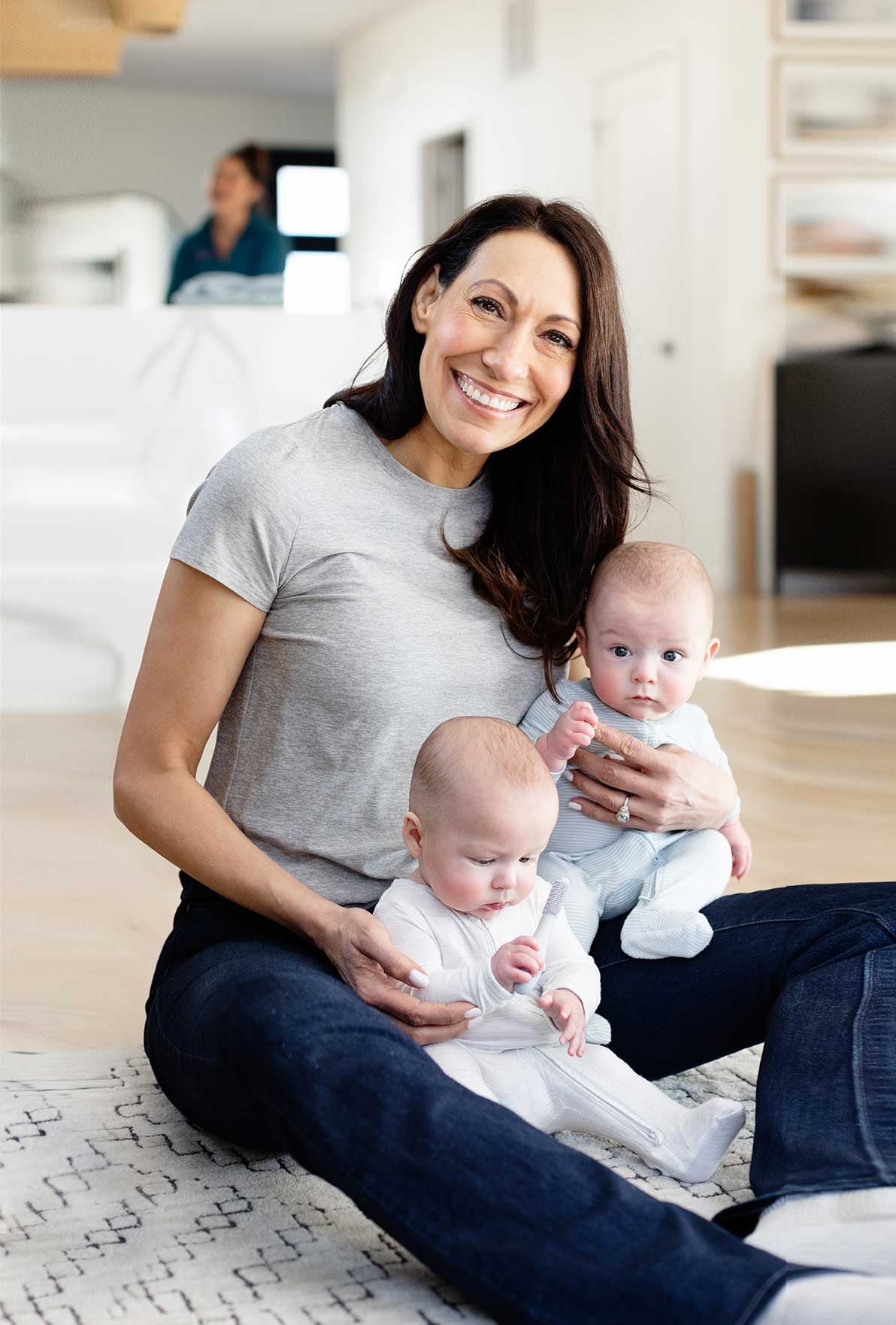Many families are eager to start their baby’s first foods and start too early (without recognizing the signs of readiness). These signs of readiness are crucial for safety.
When can you start solids safely? You can safely start solids when your baby is 6 months old and consistently showing all of the signs of readiness. At this stage, you can introduce purees using our Baby-Led™ Tiny Spoon and/or baby-led strips of food using our BLW Food Cutters.
What feeding specialists want you to know: If your baby was born early you can start solids at their adjusted age of 6 months. You can figure out the adjusted age by subtracting the number of weeks a baby was born early from the baby’s chronological age (e.g., a 6-month-old baby born 4 weeks early has an adjusted age of 5 months). In this example, waiting an additional month (until the baby’s adjusted age reaches 6 months) allows for a safer and more active / engaged feeding experience compared to starting at 5 months.
What are the signs of readiness? As you prepare to offer solids as a complement to breast-feeding or formula-feeding, there are several signs you need to observe. Your baby should be:
-
Six months old (or 6 months adjusted for preemies)
-
Sitting up with minimal support (maintains an upright posture)
-
Reaching for objects (demonstrates coordination)
-
Grasping objects (using the palmar grasp)
-
Able to control head and neck movements (especially when chewing objects)
-
Showing interest in food (watching, reaching, or opening mouth when food is near)
If your baby isn’t showing these signs, focus on skill development in preparation for Baby-Led Weaning (BLW). Every baby’s journey to solids is unique, and waiting for the readiness signs (while using the right products) ensures a smoother and safer transition to solid foods.
